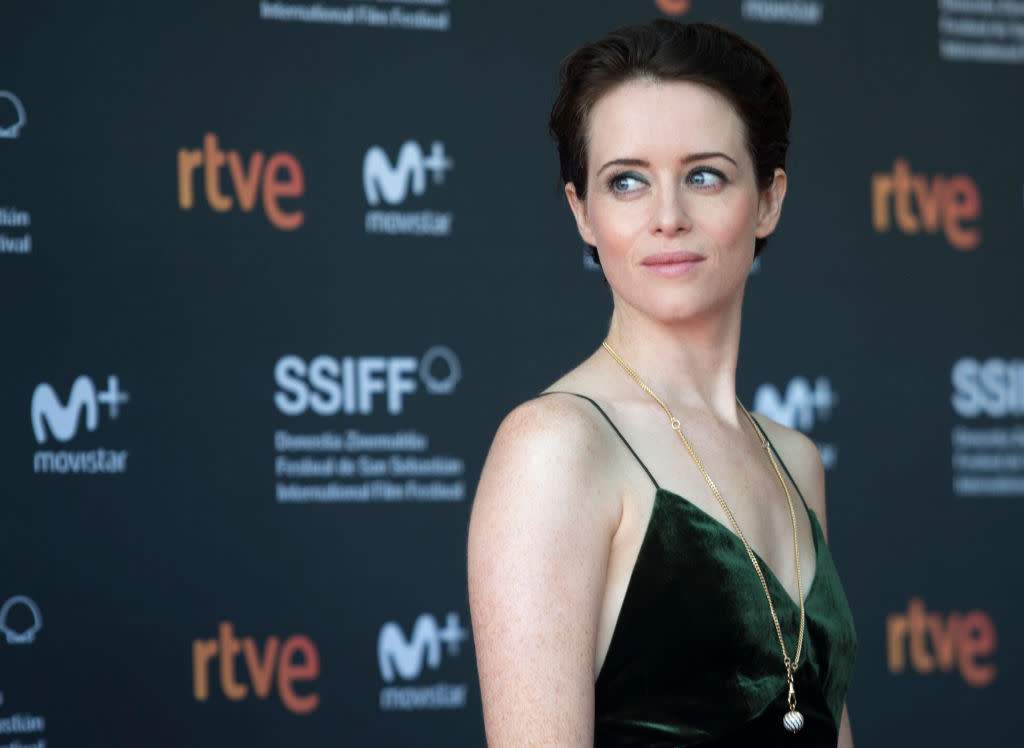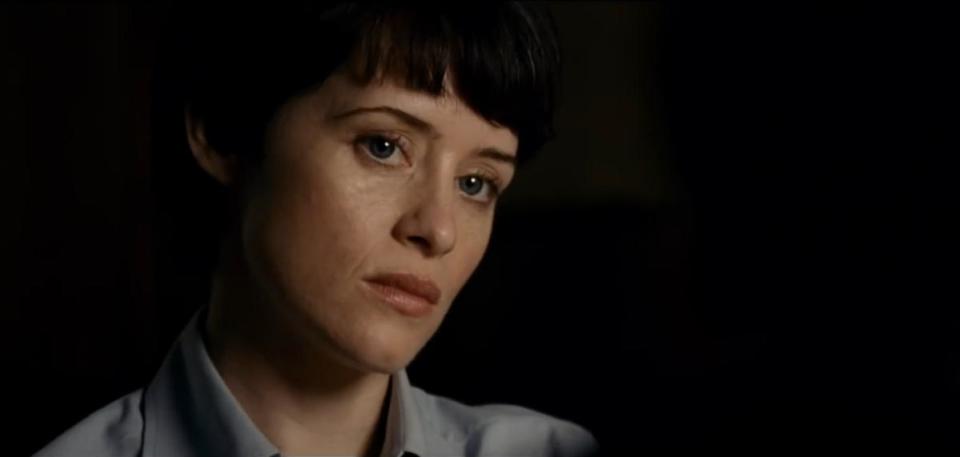Claire Foy on shooting 'First Man': 'It was as real as humanly possible'

Claire Foy rocketed to stardom playing Queen Elizabeth II on Netflix’s The Crown — a role that earned her Emmy, Golden Globe, and SAG awards for best actress in a TV drama. In the past year, however, she’s ceded her small-screen throne (to Season 3 headliner Olivia Colman) and launched an equally impressive movie career, first with March’s insane-asylum thriller Unsane and now with First Man, the story of Neil Armstrong’s historic first flight to the moon. Helmed by Damien Chazelle (fresh off his Best Director Oscar for La La Land), and starring Ryan Gosling as Armstrong, it’s a heart-pounding tale of courage and sacrifice in the face of immense odds. And while it’s Gosling who’s most often front and center as the pioneering astronaut, the film affords Foy a sterling showcase of her own as Janet Armstrong, whose relationship with her husband — complicated by the loss of their 2-year-old daughter, Karen, seven years before his legendary 1969 journey into space — forms the emotional crux of the harrowing material.
Far from merely the wait-by-the-phone wife that audiences have seen in so many similar sagas, Janet is a determined and devoted partner whose own grief and fear are tangled up with those of her spouse. In the English actress’s accomplished hands, she’s a familiar archetype marked by distinctive nuances, and Foy once again confirms her gift for bringing three-dimensional complexity and heft to roles based on real-life individuals. While she’ll next be seen in a more fantastical starring vehicle — as badass hacker extraordinaire Lisbeth Salander in Fede Álvarez’s The Girl in the Spider’s Web: A New Dragon Tattoo Story — it’s her turn in First Man that seems likely to garner her serious awards consideration this fall. In advance of the film’s release this Friday, Oct. 12, we spoke with Foy about what drew her to Janet, collaborating with a visually dynamic director like Chazelle, and the key to mastering an American accent.
Yahoo Entertainment: Janet comes across as not only a multidimensional character but a fundamentally strong one — she was a force in that household and in that marriage. What was it that most attracted you to the character?
Claire Foy: I just thought she was amazing. I really admired her character, and I thought that Josh [Singer, First Man’s screenwriter] had written her really, really well. He’d obviously spent so much time with her, and with people that knew her, so he was able to really get to the essence of the woman. So I never questioned that. I just couldn’t wait to play her.

Did you get to meet Janet before she passed away in June? And is that important when taking on such real-life roles, which you’ve now done more than once?
I never got to meet her, no. I was hoping that I would. I was really thinking all along that at some point I would be able to meet her. I’ll always regret having not met her. But I think that sometimes if you do meet someone — especially in the way that I felt about Janet — I think if I’d met her, I definitely would have hero-worshipped her quite a lot, and I’m not sure that would have particularly informed or helped my performance in any way, if I’d been so overwhelmed by meeting her. And also, you have to be incredibly respectful of whether that is something that person would appreciate or not. I can’t imagine it’s particularly enjoyable to sit down with someone who’s going to play you and have them pick you apart. I was quite respectful of that as well. I was very supported in it, so I knew that there was enough research that I could do just to help me get to that point.
How did you become involved with First Man; was it a project that you actively pursued?
I was sent the script, and I had a Skype chat with Damien, and then I auditioned for it. It was in the classic way, really, I suppose. I didn’t need to question it, ever — I was so, so, so honored, and so happy to even be considered. I just jumped at the chance, really.
Damien Chazelle shoots in a very up-close-and-personal manner, with lots of engaged camerawork. What was working with him like?
I love doing documentary-style shooting — I really love it. I think it feels very, very immediate. The way Damien did it, it was a 360-degree kind of thing. Everything was prepared at all times, so the unit was following us, and therefore you didn’t want to turn a corner and find the entire crew hiding behind a cupboard. Everything was set up for that, and we had the ultimate amount of freedom. Especially all those scenes, like in the X-15 with Ryan, and the way they did everything in the capsule — there was no green screen. Everything was as real as humanly possible, so that when those guys looked out the window, they saw the Earth or the moon — it was there, as opposed to it being a green screen and having to pretend.
That’s just a testament to Damien, that he put us in a position as actors where we really didn’t have to do any imagining in that way. It was as real as humanly possible.
Were any scenes particularly difficult to shoot, be it Janet and Neil mourning Karen or Janet telling off her husband’s NASA bosses?
Those scenes are always the most pressurized ones, because we knew that they had happened; we knew that Janet had really done that. I don’t know if I would have the wherewithal to take it straight to those [NASA] people and tell them that what they’re doing is wrong and tell them that they needed to step up. I don’t know if I would have had that ability, to trust my instincts that much. But I just went in there and I did that. I don’t know — I like to think I would.
For me, with those scenes, you definitely know they happened, so you have to get yourself to the point of understanding what could move somebody to do that, and behave in such a way that’s so different to you. Or could have moved things forward like that. Like, for example, the scene set the night before Neil goes to launch. We knew that that had happened, so we bled it dry. Like, we absolutely bled it dry of everything that was there. We did it all night long, improvised, so that we could make sure that we had explored every avenue.
Your American accent is stellar in First Man. How hard was it to master?
It doesn’t come easy; it’s definitely a lot of work. And I will never master it. That’s the thing — I’ll never do a perfect American accent. You have to accept that that’s part of the flaw of acting. You can try and try and try, but ultimately you have to hope in the end that the perfection of something is not why people watch films. They want to be moved by the emotion and to see real people, as opposed to someone doing a perfect impression of someone else. So I did all the work that was humanly possible, but then you have to accept that you’re never going to reach perfection.
Read more at Yahoo Entertainment:

